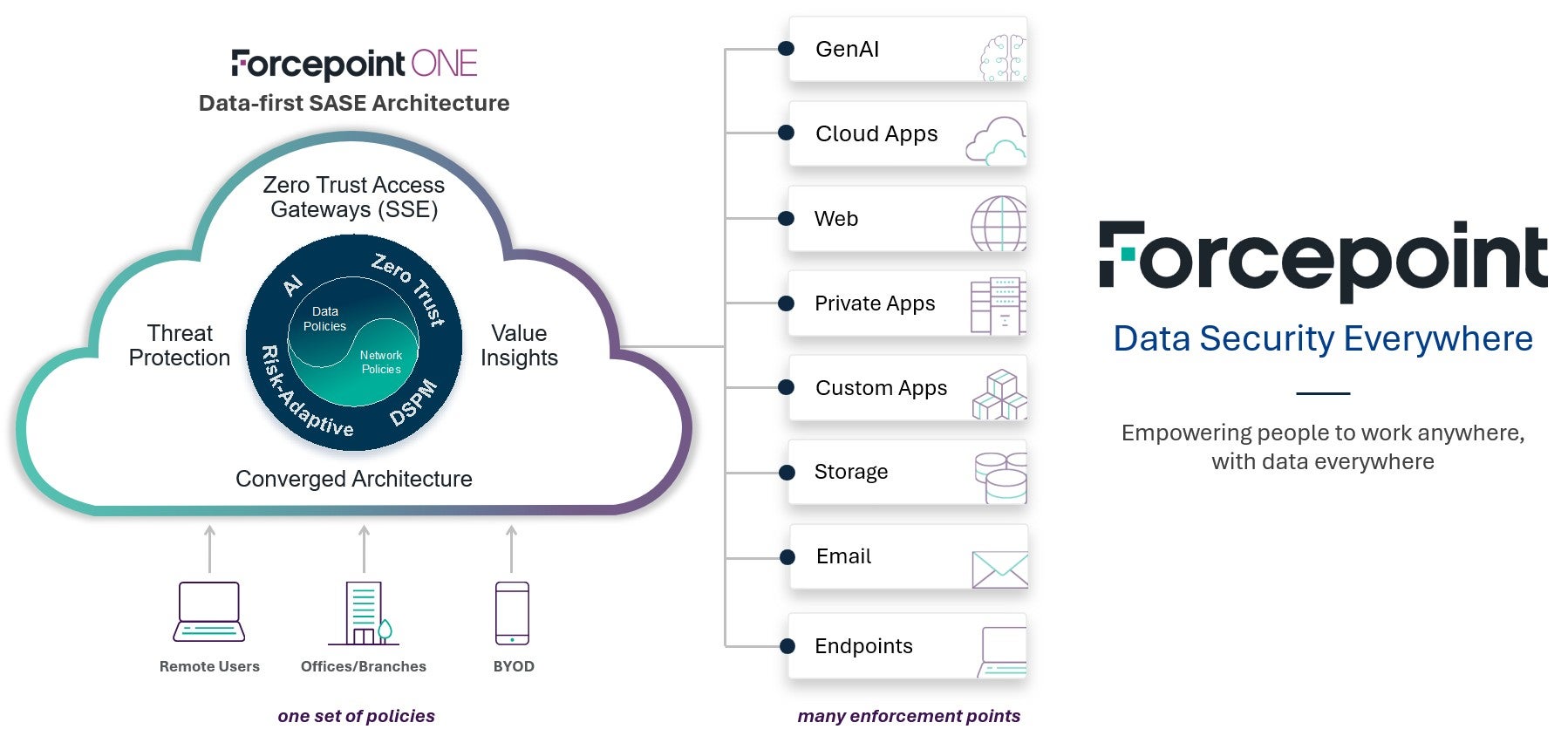Safeguarding a new era of AI Transformation with Forcepoint GenAI Security
0 minutes de lecture

Today marks an important milestone in both the GenAI and security industries. Forcepoint is honored to be among the first security vendors to integrate with OpenAI’s ChatGPT Enterprise Compliance API. Forcepoint DSPM now uses this API to give businesses unparalleled visibility into how ChatGPT Enterprise (the business-oriented edition of the industry’s leading Generative AI) is being used throughout their organization.
Available today, Forcepoint DSPM provides clear, easy-to-understand dashboards showing who is using ChatGPT Enterprise, what they’re uploading, and what business risk any of it may be creating. This end-to-end visibility into how and where sensitive data is being used makes it easier for organizations to create robust data security policies that our Security Service Edge (SSE) and Data Loss Prevention (DLP) solutions can use to help prevent inappropriate uploading of that information.

GenAI sites have rapidly become the first step for many businesses in their AI Transformation journey—spawning a new set of initiatives whose speed and impact is already eclipsing Digital Transformation. Just about every organization we talk with is scrambling to figure out how they can use GenAI to boost productivity and competitiveness. But they all recognize that GenAI systems provide the best answers when fed relevant data, making it all too tempting for well-meaning users to inappropriately upload sensitive information.
That’s where ChatGPT Enterprises’ new Compliance API comes in, making it possible for integrated products such as Forcepoint DSPM to follow sensitive data from wherever it is stored across an enterprise (in the cloud and on-prem) to its use in ChatGPT Enterprise. This enables us to connect the dots, providing a single place for organizations to answer crucial questions like:
- Who is using ChatGPT Enterprise?
- What prompts are they submitting? Are they risky?
- Which files are being uploaded?
- Are any of those files sensitive?
- What risks might those uploaded files present?
- Do the combinations of users and files pose special risks such as data sovereignty issues?
We’re doing more than just logging activities, we’re correlating them with other sources of information to provide insights that otherwise wouldn’t be available. Forcepoint DSPM’s unique AI Mesh technology enables data to be classified with unparalleled accuracy and efficiency, adding “tags” for attributes such as type, sensitivity, organization, location, and more. Then, Forcepoint DSPM uses the ChatGPT Enterprise Compliance API to monitor the data that gets uploaded into ChatGPT Enterprise and uses those tags to link the data to where it came from. With the insights this provides, businesses can build data security policies that can be applied across many different GenAI sites, SaaS cloud apps, shadow IT web sites, endpoint devices, even email—an approach we call Data Security Everywhere.

What we’re doing with ChatGPT Enterprise is just one example of how our data security products provide visibility and control for sensitive data in GenAI sites and applications (we’ll be blogging here about further examples in the coming weeks). Most importantly, you can now be confident that your people can use GenAI productively while complying with your organization’s information policies.
See it for yourself in this video:
For more about the art of the possible in safeguarding your use of GenAI, see our GenAI Security webpage. Learn more about securing GenAI with Forcepoint DSPM and AI Mesh—Sign up for our webinar coming August 15th.

Jim Fulton
Lire plus d'articles de Jim FultonJim Fulton serves as VP Product Marketing & Analyst Relations, focused on SASE, SSE and Zero Trust data security. He has been delivering enterprise access and security products for more than 20 years and holds a degree in Computer Science from MIT.
- Forrester: Securing Generative AI
Dans l'article
- Forrester: Securing Generative AIVoir le Rapport de l'Analyste
X-Labs
Get insight, analysis & news straight to your inbox

Droit au But
Cybersécurité
Un podcast couvrant les dernières tendances et sujets dans le monde de la cybersécurité
Écouter Maintenant